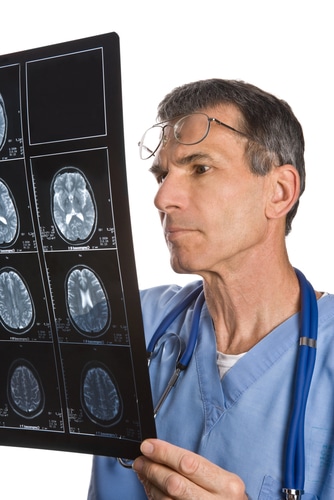
Weight Gain: It’s All in Your Head
In a study published in The Journal of Neuroscience, researchers did a functional MRI imaging brain scan on college students while they showed them photos of various types. Some of the photos featured images of tasty foods like chocolate cake or a plate of French fries. While they gazed at the photos, researchers recorded their brain response along with their body weight. Then they had them return for follow-up six months later.
When they reweighed the students, they discovered something interesting. The students whose brains responded strongest to photos of food were the “biggest gainers” in terms of weight and body fat over the six month period. It was the nucleus accumbens, the brain’s reward center, which “lit up” when the weight-gainers looked at food photos. Activity in this area in response to food images may indicate a stronger reaction to food cues and a greater tendency to put on weight.
How can this information help you control your weight? As the researchers point out, if you know that certain foods activate your brain’s reward center, you can re-train yourself not to respond so easily or to avoid confronting those foods. It may not be practical to hook everyone up to a functional MRI machine to see how they react to foods, but you probably already know what foods tempt you. For some people, it’s French fries. For others, it’s a bowl of Haagen Daaz. Knowing this lets you take steps to stay out of temptation’s way.
For example, if you have a weakness for French fries don’t pull into a fast-food restaurant and tell yourself you’ll only order a salad. The smell of those French fries will activate your pleasure center. If doughnuts are your downfall, don’t sit in the break room at work when there’s a box of doughnuts on the table. Pack a healthy lunch instead so you don’t have to dine at a fast-food restaurant, and bring your own healthy snacks to work to munch on.
Here are some other ways to reduce the number of food temptations your brain has to deal with:
When eating out, don’t let them bring the bread basket to your table. Out of sight means out of mouth.
Don’t cruise down the chip and cookie aisle at the supermarket. Steer your cart towards the periphery of the store where the “good for you” stuff is.
Don’t ask to see the dessert tray at a restaurant, just to “see what they have.”
Don’t leave bowls of food on the table so you can easily refill your plate.
Don’t keep a candy jar on your desk at work.
Don’t stock your kitchen cabinets and refrigerator with unhealthy foods as a temptation every time you open the doors. If you decide to splurge on ice cream, make it harder to do by going to an ice cream store.
Make it look like you’re eating and drinking more by using smaller plates and cups. Yes, you can trick your brain.
These are only a few of the tricks you can use to avoid succumbing to an unhealthy food temptation. Now you know. That craving to eat ice cream really is all in your head.
References:
The Journal of Neuroscience, 18 April 2012, 32(16): 5549-5552; doi: 10.1523/JNeurosci.5958-11.2012.
Medical News Today. “Predicting Weight Gain Using Brain Scans”
Related Articles By Cathe:
5 Bad Eating Habits That Make It Tough as Nails to Lose Weight

